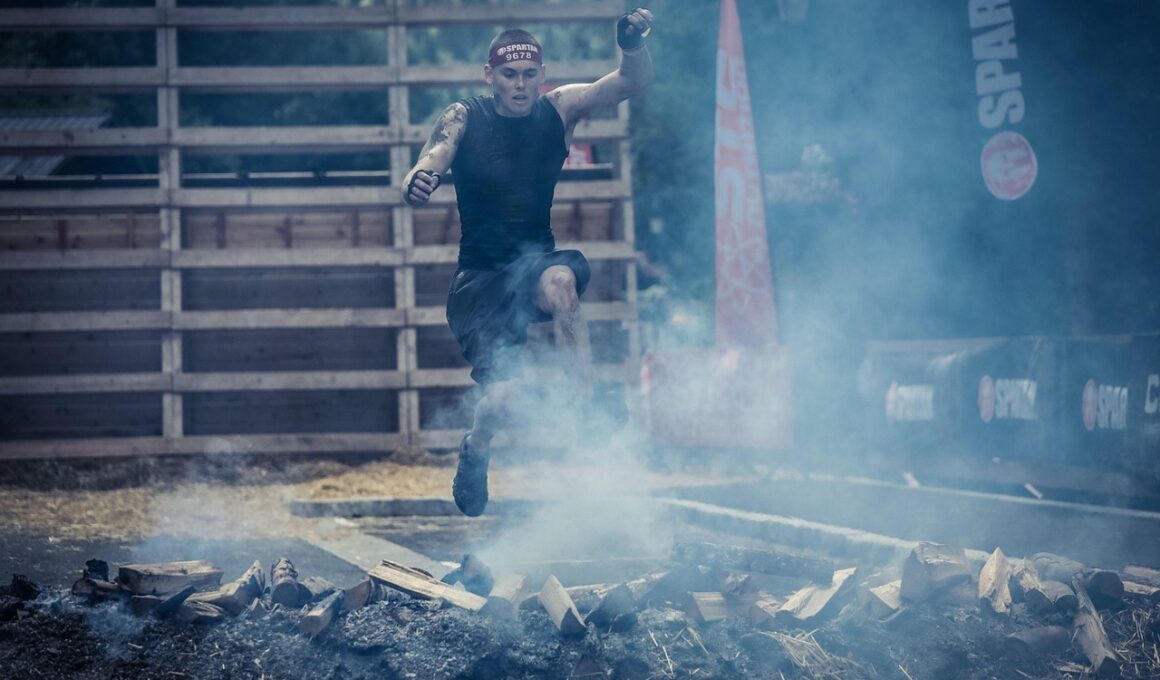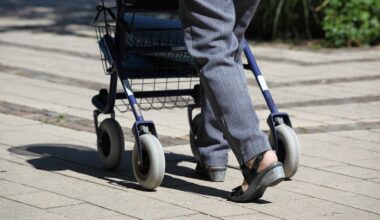The Role of Parents in Supporting Young OCR Athletes
Obstacle Course Racing (OCR) has rapidly gained popularity, especially among families and kids. Parents play a vital role in fostering an environment that encourages their children to engage with sports. By actively participating in training sessions, attending events, and showing enthusiasm, parents can inspire young athletes to take their challenges seriously. Support from parents not only boosts the confidence of young athletes, but it also helps them develop essential life skills such as perseverance, teamwork, and resilience. Moreover, actively engaging in this sport can strengthen familial bonds, allowing parents and children to create lasting memories together. In addition to providing physical support during training and events, parents can offer emotional support, helping kids navigate their fears and anxieties related to competition. Through open communication, parents can encourage a growth mindset, emphasizing that participation matters more than winning. Indeed, modeling healthy behaviors during both successes and failures contributes to a positive experience for young OCR athletes. Finally, creating a supportive community through other parents, local clubs, and events can enhance children’s participation experience.
One of the primary ways parents can support their young athletes is by ensuring they are adequately prepared for the challenges of OCR. This includes providing the right gear, such as shoes and clothing tailored for obstacle racing. Taking the time to research quality equipment can make a significant difference in performance and safety. Subsequently, it’s essential for parents to familiarize themselves with the rules of the sport and even volunteer at local events. By becoming involved in their child’s OCR journey, parents can better support their child’s interests and concerns and, in turn, foster a greater understanding of the sport itself. Establishing a pre-race routine can also help calm nerves and enhance focus before an event. Furthermore, parents should proactively enroll their children in age-appropriate training classes where they can learn valuable techniques and safety measures. These classes often emphasize teamwork and camaraderie, which enriches the overall experience. By creating a supportive yet challenging environment, parents enable their children to thrive in the world of OCR. This collective effort leads to enriched physical endurance and emotional growth, motivating them to achieve their personal goals.
Encouraging Healthy Mindsets
Encouraging a healthy mindset is crucial in supporting young OCR athletes. Parents should emphasize that OCR is not merely a competition but an opportunity for growth, learning, and fun. An effective way to impart this lesson is through storytelling. Sharing personal experiences, either in sports or other life challenges, can motivate children to embrace obstacles positively. Parents can help their kids set realistic, achievable goals that focus on progress rather than perfection, which nurtures resilience. Celebrate small achievements and recognize their hard work, making the journey rewarding in its own right. In addition to sporting success, parents should teach their children the importance of maintaining a balanced lifestyle. This includes encouraging proper nutrition, hydration, rest, and time away from training to recharge. By fostering an appreciation for all aspects of health, kids can build a solid foundation that supports their performance in OCR and various future activities. Furthermore, involving children in this process can empower them to develop choices about their fitness journey, creating a sense of ownership and responsibility regarding their goals.
Parental involvement goes beyond supporting physical training; emotional support is equally important. During difficult races, parents can offer encouragement and positivity from the sidelines, helping students move past obstacles. A simple word of praise or a cheerful cheer can boost their spirits and motivate them as they push through challenging spots. It’s equally vital to manage expectations and remind children that it’s alright to face difficulties and setbacks. Equipping young athletes with coping strategies for dealing with disappointment or anxiety can set the tone for success. Teaching them to accept mistakes as learning opportunities will help them grow. Parents should actively participate in debriefs after races, discussing what went well and identifying areas for improvement. This practice can inspire a growth mindset in children, enabling them to look forward to future races. If a child expresses disinterest or frustration, parents should listen and offer options for adjustment— in activities, teams, or even the level of competition. Prioritizing their child’s emotional health ensures that the experience remains enjoyable and promotes long-term commitment to OCR and other sports.
Nurturing Their Passion
In addition to emotional support, parents must nurture their child’s passion for OCR. Engaging in meaningful conversations about their aspirations and goals fosters a supportive environment where young athletes feel valued. Show genuine interest in their activities—ask them about their training, obstacles they enjoy, and personal challenges they face. Making these discussions a regular part of life generates excitement and motivates them to pursue OCR actively. Parents can provide inspiration by introducing their children to role models within the OCR community, such as local champions or athletes participating in elite events. Attending races and competitions together acts as an adventure and allows families to bond while experiencing the excitement surrounding OCR. Creating personalized vision boards collaboratively can further strengthen motivation as kids visualize their goals. The result is a deeper connection to their sport and a shared understanding of their aspirations and journey. Additionally, families can participate in community events, fostering relationships with other young athletes and their families. This support system creates a sense of belonging, enhancing children’s overall experience in OCR.
Parents must also take time to educate themselves about the physical demands of OCR on young bodies. Understanding the potential risks, benefits, and training requirements can help parents advocate for their children effectively. Online resources, coaching programs, and community workshops can provide valuable information regarding age-appropriate training. Collaborating with knowledgeable coaches ensures children are developing techniques safely and efficiently. Recognizing the importance of rest and recovery as part of a training schedule is crucial for young athletes to avoid injuries or burnout. Parents should help establish appropriate training regimens that prioritize enjoyment while allowing children to develop strength and skills. Monitoring their children’s involvement ensures that they remain not just physically active but emotionally engaged, encouraging a continued passion for the sport. Additionally, forming relationships with coaching staff fosters open dialogue, allowing parents to stay informed and involved in making decisions best suited for their kids’ well-being. This informed approach ultimately leads to better results, healthier habits, and a lasting love for OCR competition.
Building a Community
Building a strong community around young OCR athletes is an essential aspect of fostering their growth. Parents play a pivotal role by connecting with other families who share similar interests. Setting up group training sessions or events enables kids to enjoy companionship while engaging in healthy competition. Organizing family-oriented OCR events helps emphasize the importance of teamwork and allows children to bond with others who share their passion. These shared experiences create lasting friendships that support them both on and off the course. Parents can even initiate social media groups to share tips, training advice, and encouragement. Creating an open line of communication enables families to exchange participants’ experiences and tackle challenges together, ensuring that every child benefits from these personal connections. By forming a network of supportive families, an inclusive atmosphere develops, encouraging young athletes to thrive. Likewise, transformation into a podcast or blog sharing these events and experiences can capture the community spirit and inspire other families to participate. Collective effort always enhances the OCR journey for children, leading to a wholesome and enjoyable experience.
The role of parents in supporting young OCR athletes cannot be underestimated. As both motivators and guides, parents must actively engage in their children’s OCR experiences. From providing logistical support to nurturing their passion and emotional well-being, parental involvement can dramatically affect a child’s performance and overall enjoyment of the sport. By emphasizing a healthy outlook on competition, setting realistic goals, and remaining emotionally supportive, parents can empower their children. Through effective communication, they can further strengthen relationships that enhance young athletes’ experiences and foster a lifelong love for sports and physical activity. The ultimate goal should be to equip children with skills and experiences that will serve them well, both in OCR and their broader lives. Investing in shared activities and community relationships creates a safe and supportive environment ideal for growth. As families work together to navigate the challenges presented in OCR and life, the development of resilience and confidence becomes more achievable. The camaraderie built through these shared experiences is invaluable, and those lessons learned will last a lifetime, fostering not only young champions but future leaders.


